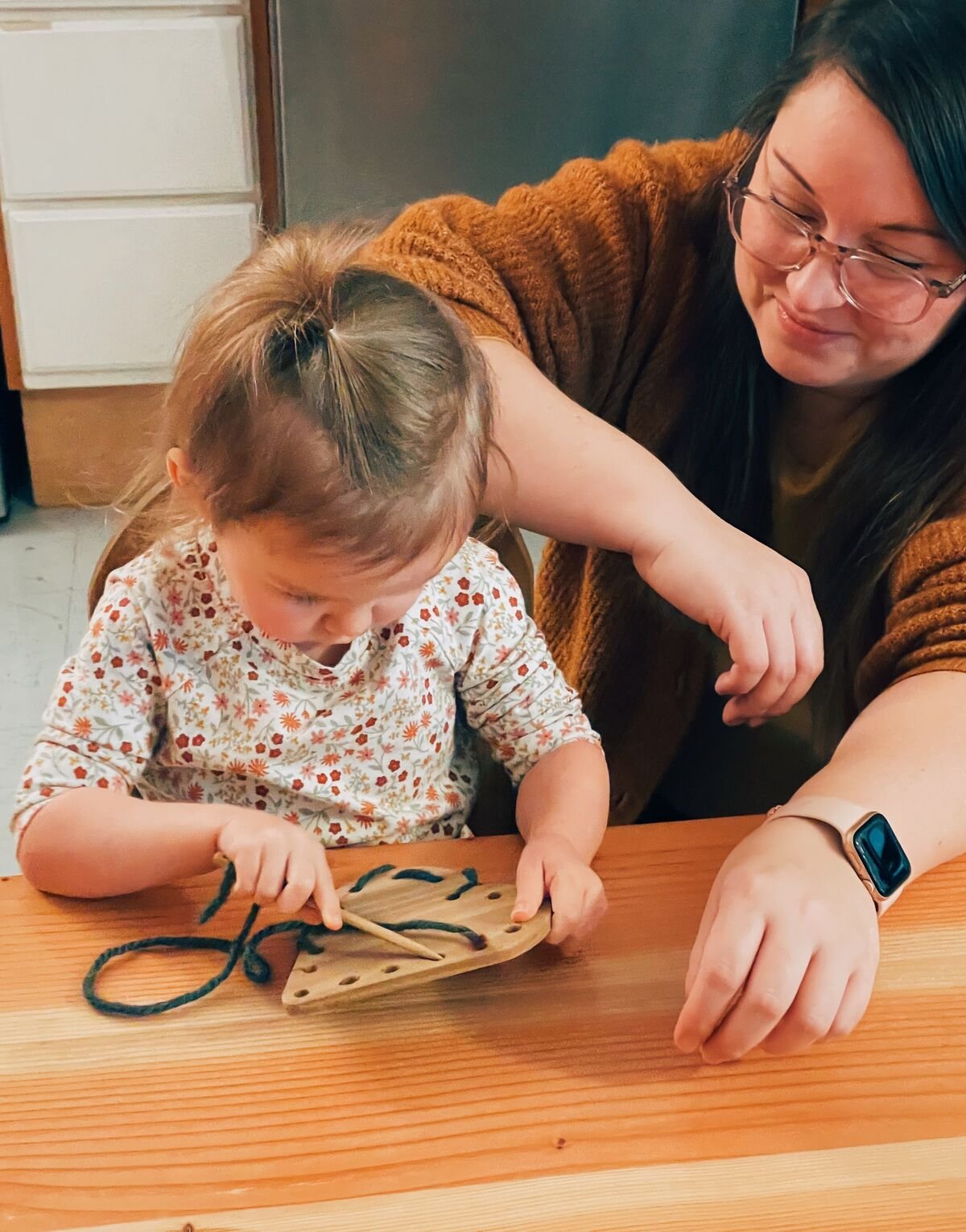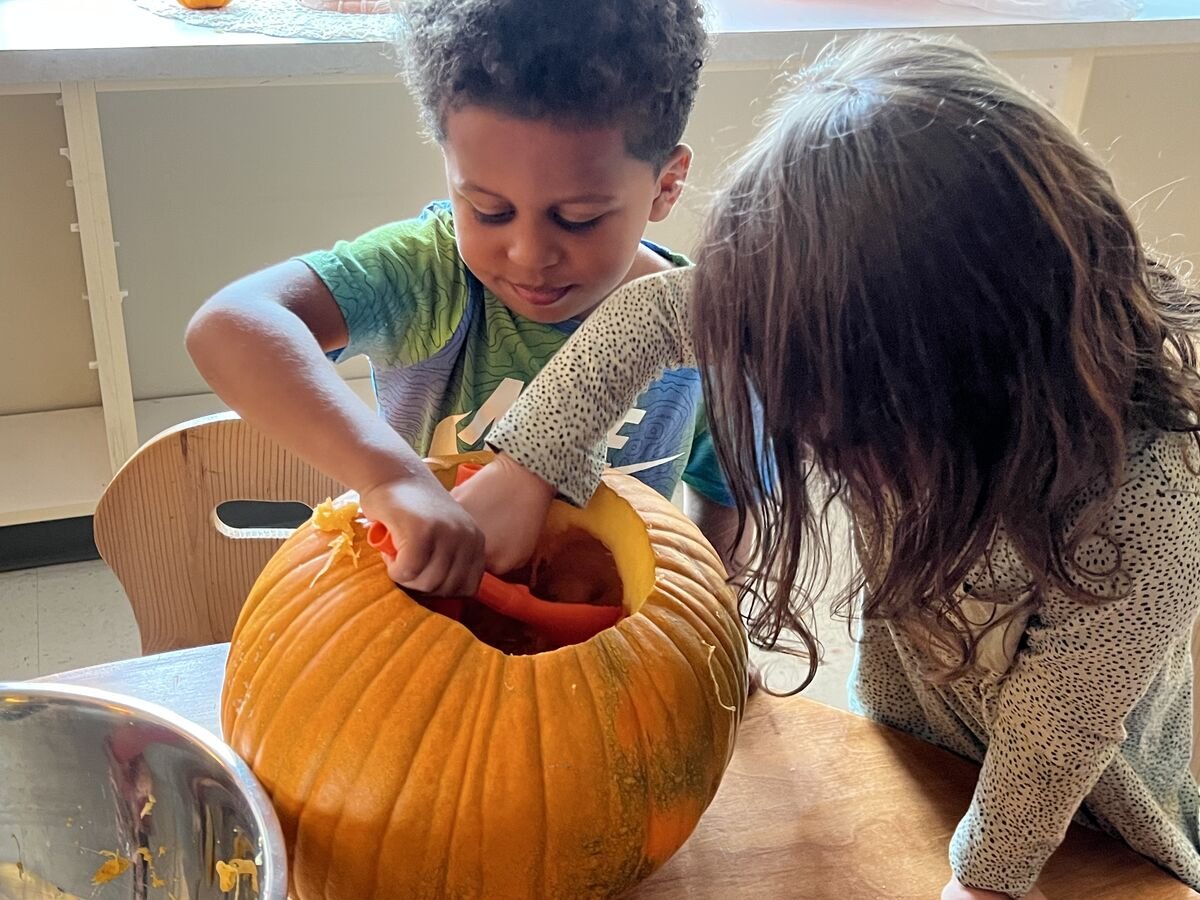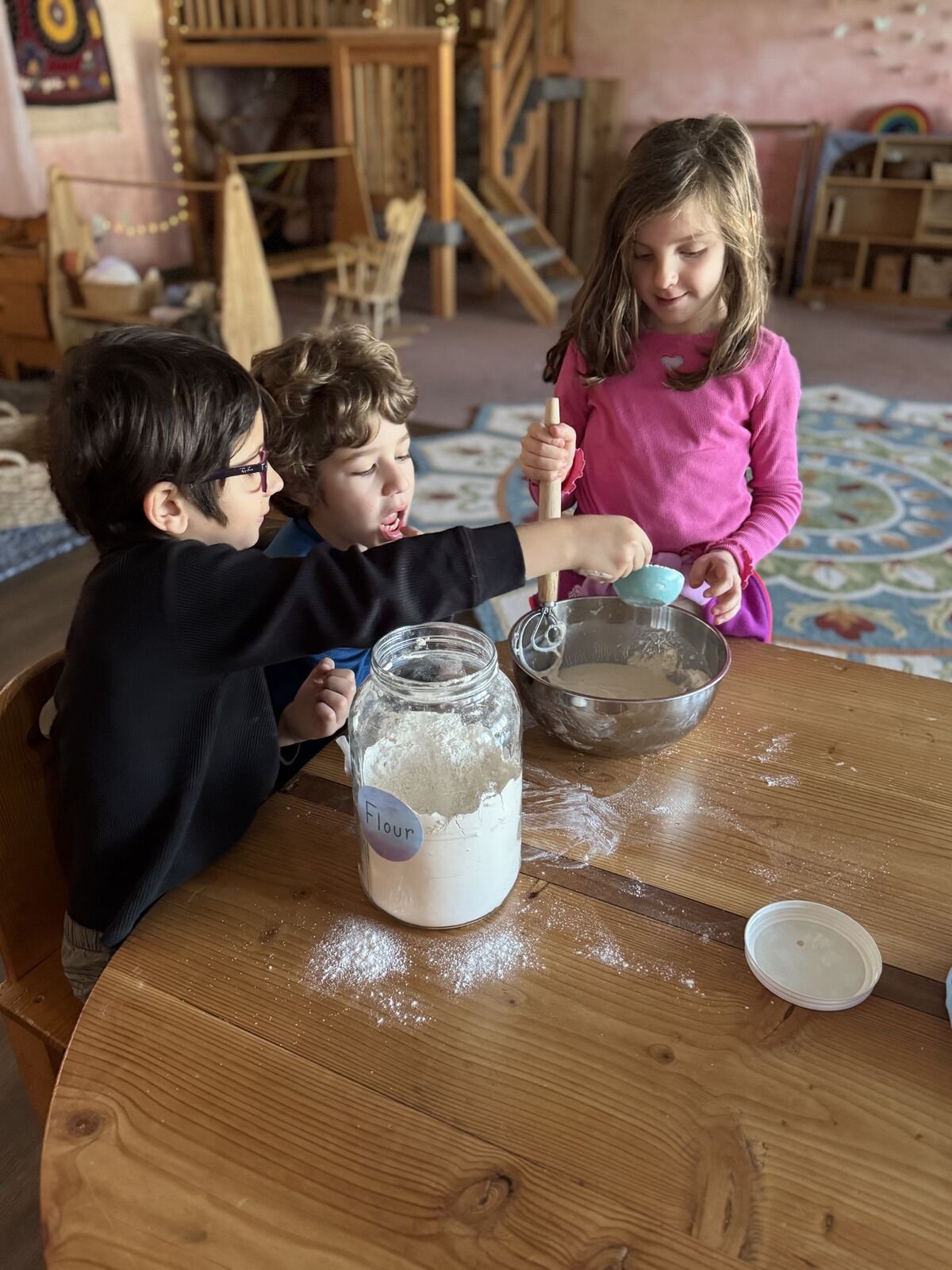
Early Childhood
“If children have been able in their play to give up their whole loving being to the world around them, they will be able, in the serious tasks of later life, to devote themselves with confidence and power to the service of the world.”
~ Rudolf Steiner
Family-Child Circle
(Birth-3 yrs)
9:00am-11:00am
Monday mornings
Caregiver stays with child
-
This group meets weekly, and is for children from birth to age 3 and their caregiver. Our Family-Child Circle is a wonderful introduction to the Waldorf Early Childhood classroom and is led by Elena LaCuesta, our Honeybee Preschool Teacher. Caregivers and their children will enjoy a warm snack, indoor play, time outdoors, and thought-provoking discussions about parenting. This is a great way to learn more about our school and connect with other families.
-
Mondays from 9:00am to 11:00am
Fall Session: Oct-Dec (10/6-12/15)
Spring Session: March-May (3/2-5/18)
Cost: $300/session
-
Please send an email to outreach@swallowtailschool.org
with your child's name and birthdate to register.
Preschool
(3-4 yrs)
Half or Full-Day Options
3 or 4 days per week
Extended Care Available
-
The preschool program at Swallowtail School is a slow introduction to the school environment, where the focus is on social-emotional development. Through imitation and gentle redirection the children learn how to care for each other, resolve differences, share, listen, and communicate. Each day is built around a rhythm that includes circle time, free play, and plenty of time outdoors. The preschool classroom is a warm, home-like environment with lots of open space for play and toys that are made from natural materials.
-
Students can attend 3 or 4 days per week.
Half Day: 8:45am-12:45pm
Full Day: 8:45am-3:00pm
Extended Care available until 5:30pm
-
Pick up on Farm Days is at 12:45pm. Families who need longer care must arrange transportation back to the main campus at that time.
Preschool students spend Fridays at the farm in the spring, from April-June. This gives the students time to adjust to being in class together at our main campus, before entering the wide open space of the farm.
Mixed-Age Kindergarten
(4-6 yrs)
Half or Full-Day Options
4 or 5 days per week
Extended Care Available
-
The mixed-age Kindergarten program at Swallowtail School prepares children for the work of the Grades. The social-emotional lessons from preschool continue in the kindergarten, along with a stronger focus on building the foundations for academics. The curriculum is rich and hands-on, playing into the natural magic and wonder that will keep the children engaged in literacy, mathematics, science, art, and music for the rest of their lives.
-
Students can attend 4 or 5 days per week. We do ask that rising 1st graders move to 5 full days by spring to allow them to adjust to the full week schedule.
Half Day: 8:45am-12:45pm
Full Day: 8:45am-3:00pm
Extended Care available until 5:30pm
-
Pick up on Farm Days is at 12:45pm. Families who need longer care must arrange transportation back to the main campus at that time.
Kindergarten students spend every Friday at the farm from September-early November, and again in the spring from April-June.
A natural foundation for a lifetime of learning
"Becoming" is the third film in a series of short films produced on the occasion of the centenary of Waldorf Education under the direction of the award-winning Californian documentary filmmaker Paul Zehrer, and which provide an insight into the inclusive diversity of Waldorf Education under the most diverse cultural, social, religious and economic conditions around the globe.
Early Childhood Curriculum
-
Nutritious Meals
We provide a nutritious snack each day. There is a rhythm to the week, meaning the same snack is served every Monday, every Tuesday, etc. This repetition gives the children a chance to feel brave enough to try and grow accustomed to a new food.
-
Practical Skills
Children are involved in the work of the classroom. Chopping vegetables, sewing, woodworking, gardening, and more. This work supports gross & fine motor skills, math & science concepts, sensory integration, and the child’s growing self-confidence.
-
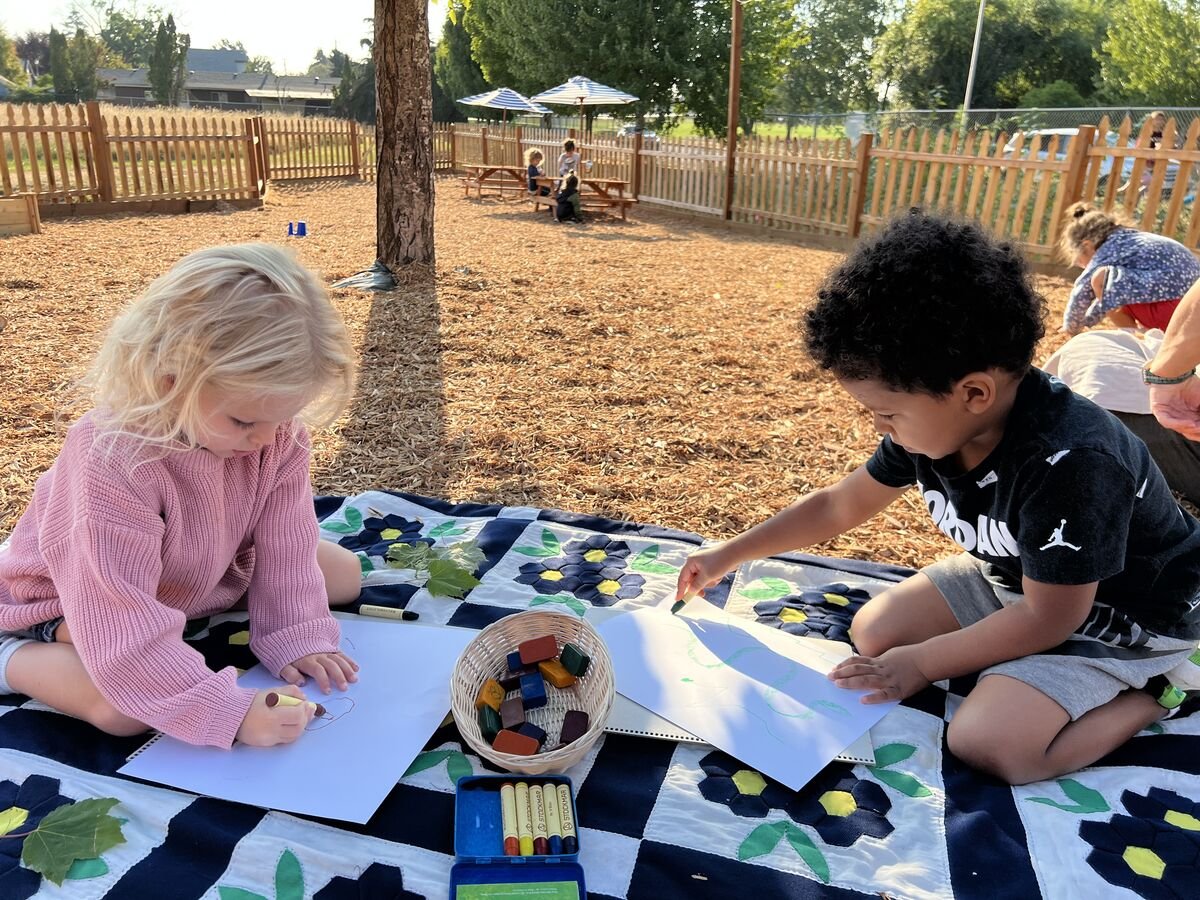
Rhythm
A sense of predictability and a healthy rhythm allow children to feel safe in the world, which makes it possible for them to settle fully into their play and learning. At Swallowtail we have a balance of quiet, focused time and child-led free play.
-
Outdoor Play
At both our farm and main campus, children spend much of their day outside regardless of the weather. Studies continue to show the importance of time for free play outside, in all areas of child development.
-

Circle Time
Circle time features songs, movement games, poems, and stories. As children get older, stories increase in length and complexity, stretching the child’s capacity to maintain focus and to form imaginative pictures of the spoken word.
-
Art
In the Early Childhood, art is about the experience of the materials. We encourage care and focus, but the children are allowed to create whatever they would like, or to simply watch the paint as it flows across the page, with no thought to creation at all.
-
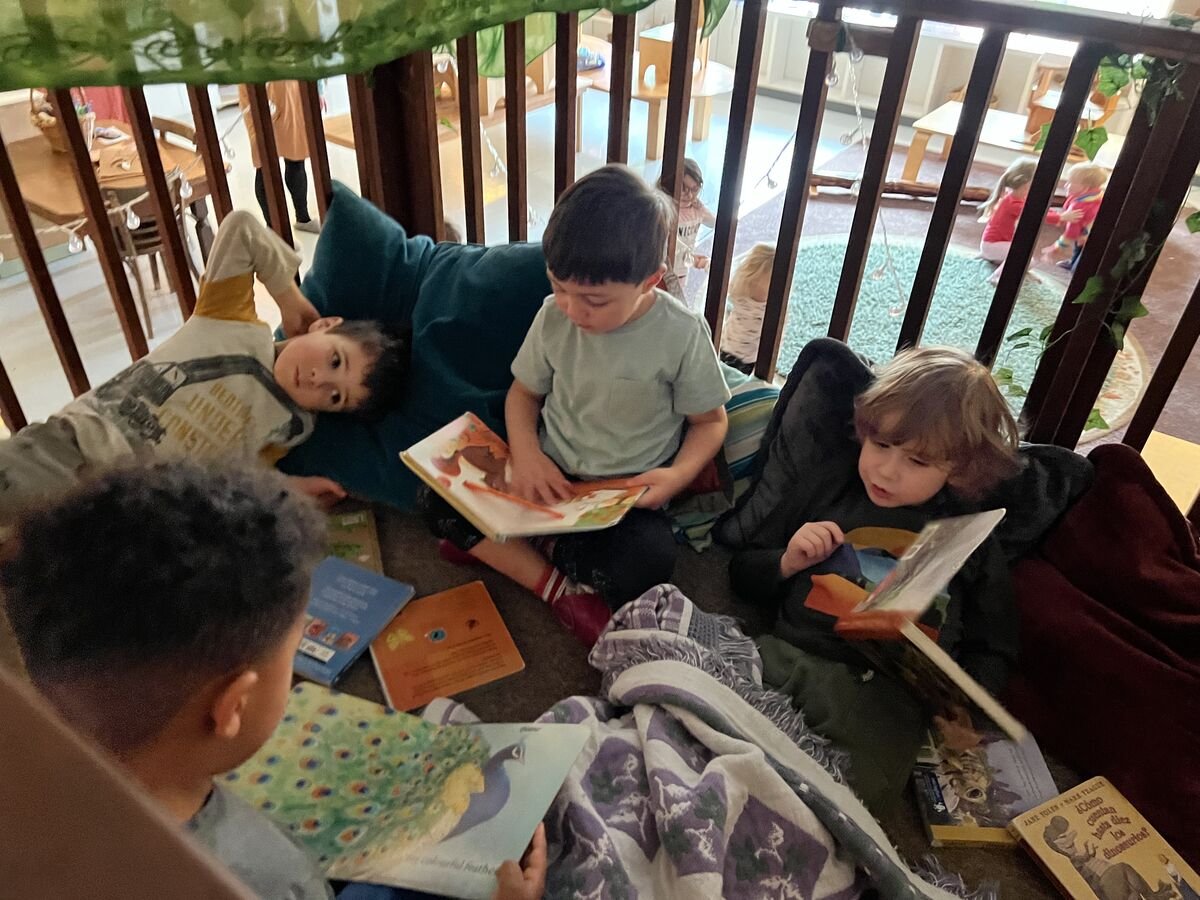
Emerging Literacy
We focus on two aspects of early literacy: phonemic awareness (essential for decoding) and forming imaginative pictures (linked to comprehension). We do not practice letters until first grade. Early letter recognition is actually less important to later reading success.
-

Magic & Wonder
We intentionally hold space for magic in the Early Childhood, inspiring the imagination with beautifully crafted classrooms and outdoor spaces. We offer slow, gentle transitions and a calm, quiet atmosphere so children can fully settle into the world of play.
-

Sensory Play
Sensory play is essential to the healthy development of a young child. It supports language, cognition, social skills, problem solving, fine and gross motor skills, and the proprioceptive and vestibular systems. Sensory play can also help a dysregulated child self-calm.
-
Handwork
Fine motor skills and the ability to maintain focus are honed through a variety of classroom crafts and activities. Children might sew a pouch, carve a sword with a pocket knife, model a snail from beeswax, string beads, or finger knit a leash for a pretend puppy.
-

Science & Math
We support science and math in the Early Childhood by allowing a child’s curiosity to flourish through unfettered access to the natural world. It also means not providing concrete answers, instead leaving space for them to imagine and problem solve on their own.
-

Empathy & Connection
Our teachers model empathy and care for the children, and gradually scaffold their ability to express their own needs, resolve conflicts with care and kindness, and make amends when they have hurt someone. Classes share strong social bonds and a culture of care.

